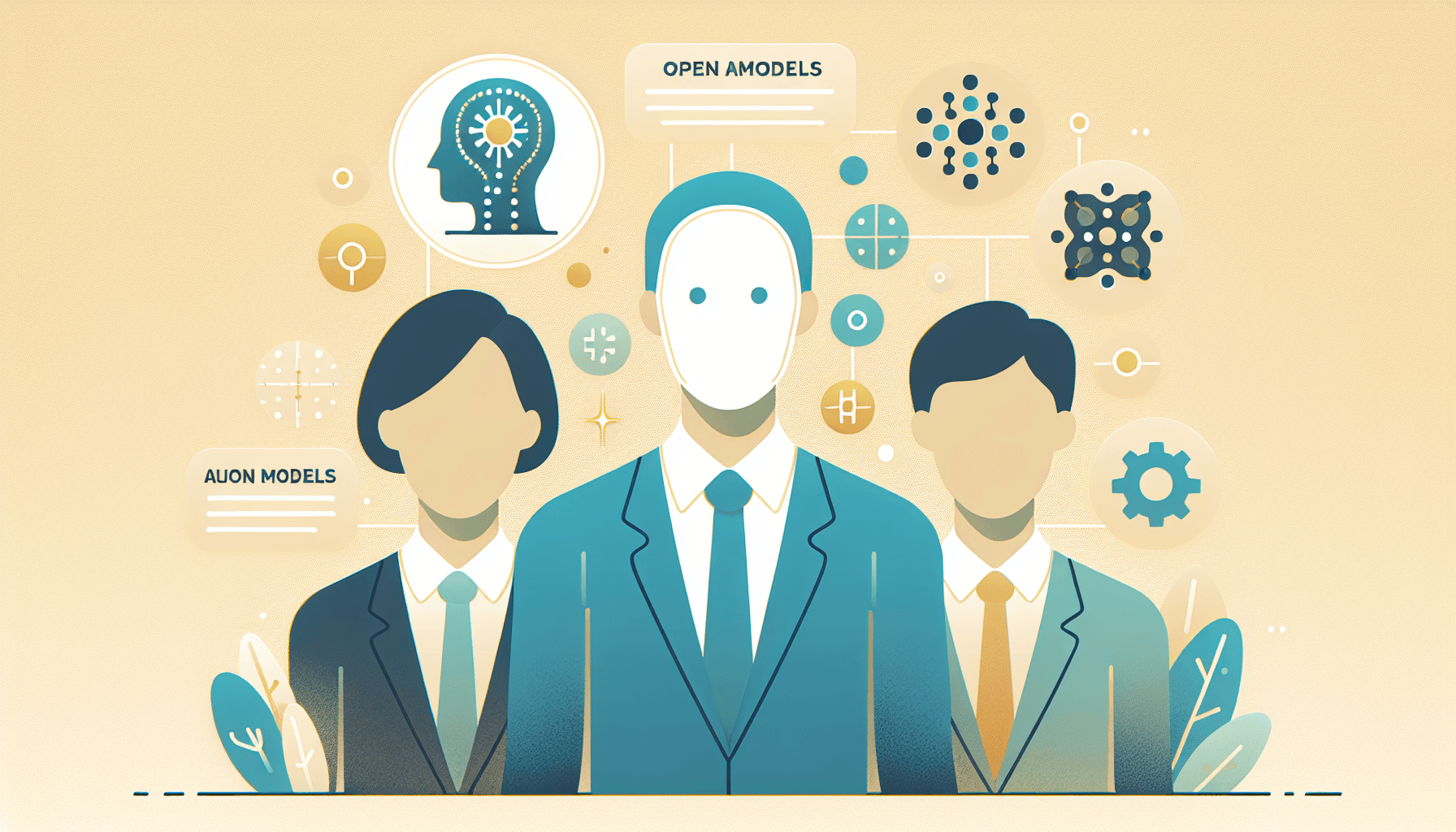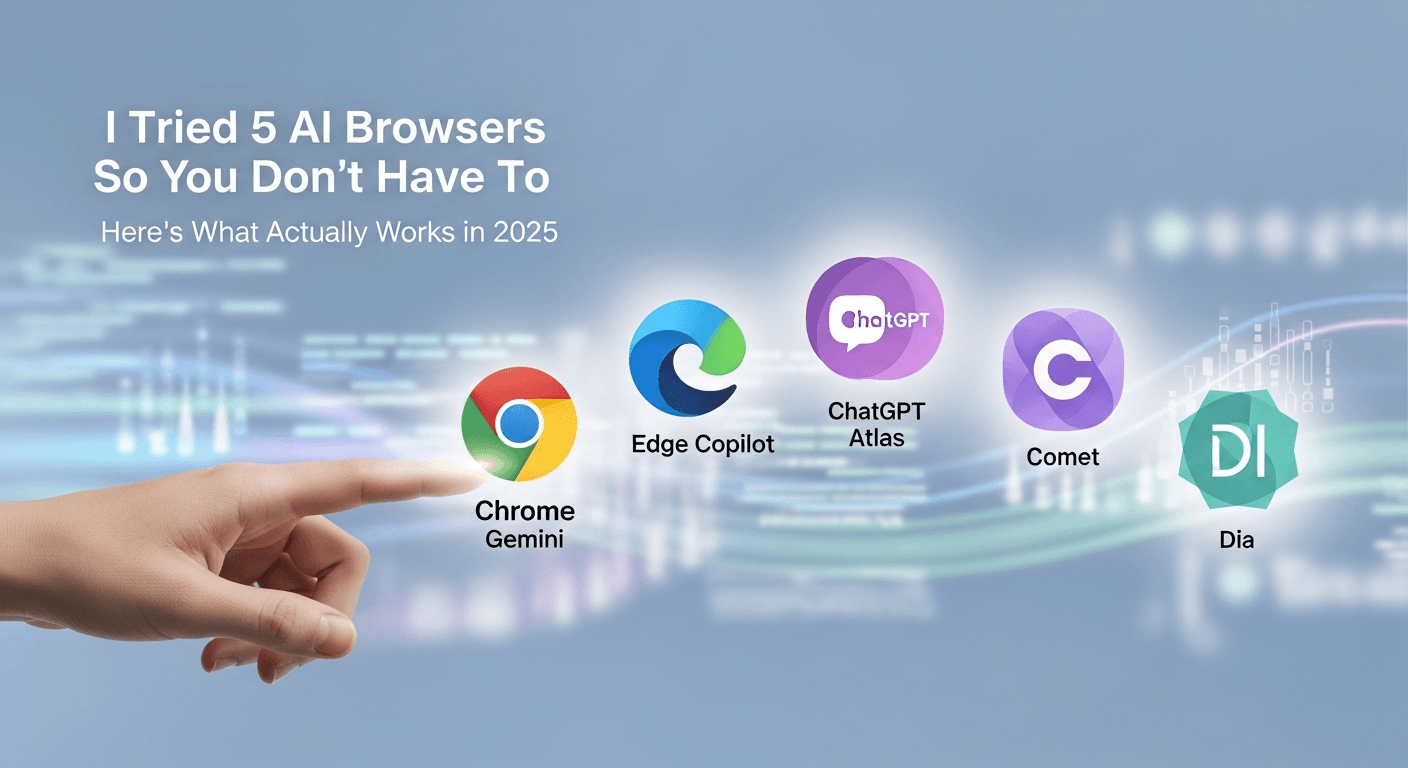
Meta Just Hired Three Award-Winning Google AI Researchers: Here’s Why It Matters
Meta Just Hired Three Award-Winning Google AI Researchers: Here’s Why It Matters
Meta has reportedly recruited three Google AI researchers who were involved with a gold medal-winning model. This move speaks volumes about the direction of the AI industry, highlighting what’s important in today’s model development and how talent is influencing both open and closed AI ecosystems.
What Happened
According to a report by The Information, Meta hired three Google AI researchers connected to a gold medal-winning model. This marks a significant trend of shifting high-profile talent within leading AI organizations. While the details regarding the researchers’ specific roles and the model remain undisclosed, these hires indicate Meta’s ongoing commitment to enhancing its research capabilities and speeding up its plans for large-scale, production-ready AI systems (The Information).
This isn’t a one-off. Over the past two years, Meta has consistently expanded its AI research and engineering teams, launched robust open models, and invested heavily in infrastructure. The company’s strategy combines open-source models with rapid product integrations, from its flagship Llama formats to the Meta AI assistant, which is now integrated across apps like Instagram, WhatsApp, and Facebook.
Why This Hire Matters
It Supports Meta’s Open Model Strategy
Meta’s recent releases, Llama 3 and Llama 3.1, showcase a clear vision: to deliver cutting-edge capabilities while maintaining an open model ecosystem that developers and businesses can adopt and enhance. With sizes reaching up to 405 billion parameters, Llama 3.1 is designed for real-world applications, demonstrating strong reasoning, multilingual support, and multimodal performance (Meta AI). Hiring researchers with proven success in competitive environments can shorten the feedback loop between advanced research and practical, production-ready releases.
It Strengthens Applied Research for Products
Meta is deploying AI across its consumer apps at scale. The company broadened the rollout of the Meta AI assistant in 2024, introducing generative features such as image creation, Q&A, and task assistance into everyday applications (Meta Newsroom). Researchers who build award-winning models excel in efficiency, data management, and effective evaluation processes, all of which can directly enhance real-world performance and cost-effectiveness.
Award-Winning Models and Why They Matter
In the context of machine learning, “gold medal” can refer to top placements in academic competitions (such as those associated with major conferences) or industry challenges on platforms like Kaggle. Regardless of the context, these achievements highlight expertise in several practical areas:
- Feature engineering and managing data quality under constraints
- Efficient training and inference methods
- Thorough evaluation and ablation techniques
- Ensembling, uncertainty estimation, and detailed error analysis
These skills are precisely what large AI organizations need to develop models that aren’t just strong on benchmarks but also reliable, safe, and cost-effective for real-world implementation. For anyone building or deploying AI systems, bridging the gap between lab-based metrics and product performance is a challenging task. Talented teams with practical, competition-tested experience can help bridge that gap more swiftly. For insights on how modern benchmarks and leaderboards propel advancements in the field, explore Papers with Code’s continuously updated state-of-the-art listings across various tasks and modalities (Papers with Code). In terms of industry recognition, Kaggle’s Grandmaster tiers remain a respected benchmark (Kaggle).
The Broader Talent War: Meta vs Google and Everyone Else
The entire tech industry is competing to attract and retain a limited pool of researchers and engineers capable of pushing the boundaries while ensuring reliable large-scale delivery. Google has unified its Brain and DeepMind teams into a single entity since 2023, continuously advancing its Gemini models which feature extensive context and multimodal capabilities (Google). Meanwhile, Meta has embraced a strategy centered around open models like Llama, fostering a diverse developer community and investing heavily in computational resources and infrastructure. Both companies are exploring avenues such as reasoning, tool usage, and multimodal systems that could support assistants, searching, advertising, and creative tools.
Competition for experienced talent is intense, driven not only by compensation but also because the next breakthroughs will likely require tightly integrated cross-functional teams encompassing data, evaluation, systems, safety, and product development. Organizations that can provide researchers with access to vast computational resources, high-quality data pipelines, and fast track pathways to impact have a distinct advantage. Industry analyses consistently highlight that the demand for these hybrid research-engineering roles far exceeds the supply (McKinsey, 2024).
What This Could Mean for the Next Generation of Meta Models
Although Meta has not directly linked these new hires to a specific roadmap, there are multiple areas where their additional expertise could yield quick results:
- Improving reasoning and planning—enhancing tool usage, information retrieval, and long-context workflows for tasks like coding and data analysis.
- Advancing multimodality—seamlessly integrating text, images, audio, and video, building on previous initiatives like Emu and Audiocraft.
- Enhancing efficiency—implementing techniques that lower training and inference costs, including methods like distillation, quantization, and improved routing.
- Ensuring safety and reliability—conducting better adversarial testing, preference modeling, and comprehensive evaluations for real-world edge cases.
Recent offerings like Llama 3.1 highlight Meta’s ambition for state-of-the-art capabilities at large scales, emphasizing developer usability and enterprise readiness (Meta AI). Bringing on board researchers with award-winning expertise can fast-track both experimental iterations and the subsequent hardening for production.
Implications for Builders, Buyers, and Researchers
If You Are Building with AI
- Anticipate quicker model turnarounds and more frequent fine-tuning options as open ecosystems like Llama continue to develop.
- Invest in evaluation from the start. Emphasize competition-style rigor: define metrics, monitor data trends, and devise ablation studies before scaling.
- Strike a balance between model capability and efficiency. Plan for quantization, caching, routing, and hybrid cloud-edge deployment.
If You Are Buying or Adopting AI
- Keep an eye on how swiftly vendors implement cutting-edge techniques into stable products and how transparent they are with their evaluations.
- Prioritize portability. Even if you select a closed model today, ensure there are open pathways available via APIs, adapters, or alternative open options.
- Seek evidence beyond singular benchmarks. Real-world applications necessitate various tests including safety, bias, latency, cost, and reliability under load.
If You Are a Researcher
- Impact on production is now as crucial as leaderboard success. Demonstrate clear pathways from research to deployable systems.
- Cross-train in data engineering, evaluation, and systems. The most sought-after roles combine these competencies.
- Open contributions can go a long way. Well-documented repositories, reproducible baselines, and clear evaluations will elevate your work.
Risks and Realities to Keep in Mind
- High-profile hires do not guarantee product innovations. Company culture, data accessibility, and infrastructure are equally vital.
- Benchmark overfitting is a genuine concern. Balance advancements on public leaderboards with private, task-specific evaluations.
- Talent movements are cyclical. Anticipate ongoing changes as organizations refine their model strategies and product priorities.
Bottom Line
Meta’s recruitment of three Google AI researchers linked to a gold medal-winning model signals that the AI talent market remains as competitive as ever. For Meta, this could lead to quicker iterations and deeper expertise across research and production. For everyone else, it serves as a reminder to focus on the core principles that successful teams excel at: clean data, robust evaluation, efficient systems, and the discipline to deliver.
FAQs
Who Are the Researchers Meta Hired?
As reported by The Information, Meta has recruited three Google AI researchers affiliated with a gold medal-winning model. As of now, their individual names and roles have not been officially detailed by Meta (report).
What Does “Gold Medal-Winning Model” Mean Here?
In the realm of AI, a gold medal typically signifies a top achievement in a recognized competition or challenge. This indicates that the model and its team excelled under standardized evaluations, often leading to tangible strengths such as efficient training, thorough evaluation, and precise error analysis.
How Does This Affect Meta’s Llama Roadmap?
Meta has been progressively deploying powerful open models, including Llama 3.1, with up to 405 billion parameters. The addition of research talent can expedite progress in areas such as reasoning, multimodality, and efficiency, although there is no direct link between these hires and any specific upcoming release (Meta AI).
What About Google’s AI Efforts?
Google continues to develop its Gemini model family, which includes long-context and multimodal variations, after merging its research teams under Google DeepMind (Google). The AI talent market is dynamic, with leading researchers frequently moving between organizations.
Will This Enhance AI Tools in Meta’s Apps?
Potentially. Meta is incorporating AI into platforms such as Instagram, WhatsApp, and Facebook through its Meta AI assistant. Greater research expertise could lead to improvements in quality, safety, and efficiency over time (Meta Newsroom).
Sources
- The Information – Meta Hires Three Google AI Researchers Who Worked on Gold Medal-Winning Model
- Meta AI – Introducing Llama 3.1
- Meta Newsroom – Introducing Meta AI
- Google – The Gemini Model Family
- Papers with Code – State-of-the-Art Leaderboards
- Kaggle – Progression System and Grandmaster Tiers
- McKinsey – The State of AI in 2024
Thank You for Reading this Blog and See You Soon! 🙏 👋
Let's connect 🚀
Latest Insights
Deep dives into AI, Engineering, and the Future of Tech.

I Tried 5 AI Browsers So You Don’t Have To: Here’s What Actually Works in 2025
I explored 5 AI browsers—Chrome Gemini, Edge Copilot, ChatGPT Atlas, Comet, and Dia—to find out what works. Here are insights, advantages, and safety recommendations.
Read Article


